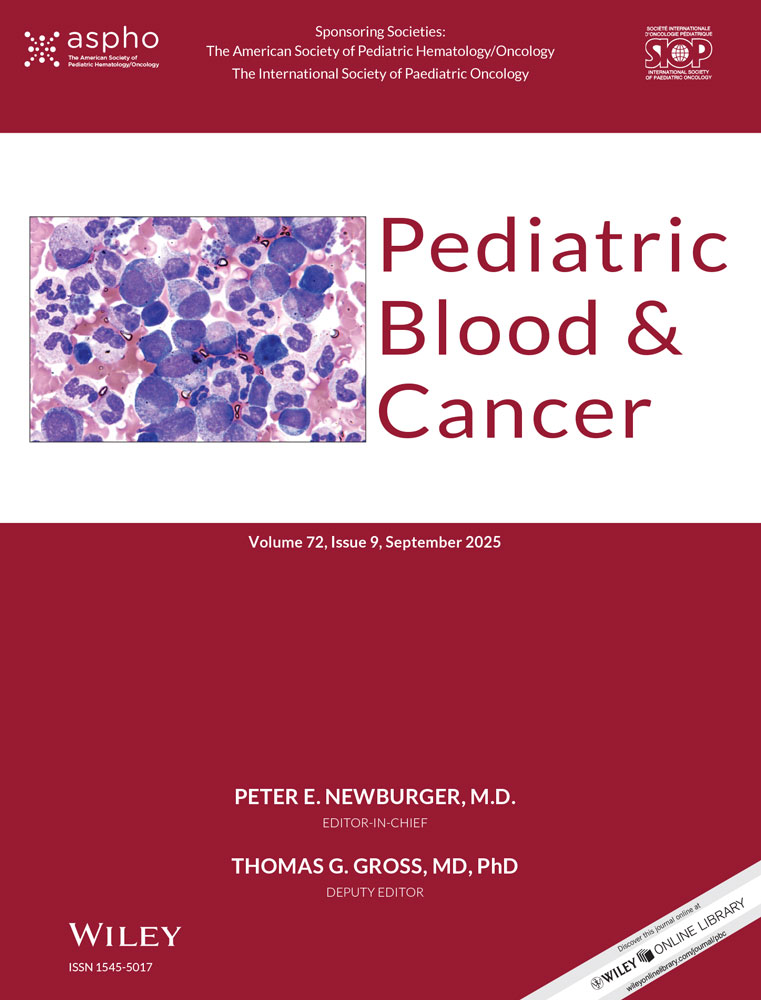Ciprofloxacin and amoxicillin as continuation treatment of febrile neutropenia in pediatric cancer patients†
This work was performed at Children's Hospital and Regional Medical Center, Seattle, Washington.
Presented in part at the meeting of the American Society of Pediatric Hematology Oncology/SIOP, 1999, Montreal, Canada.
Abstract
Background
The empiric administration of anti-microbial therapy significantly reduces the morbidity and mortality associated with febrile neutropenic episodes in oncology patients. Outpatient empiric antibiotic therapy can be safely administered to a subset of febrile neutropenic patients at low risk for clinical complications.
Procedure
Pediatric cancer patients presenting with febrile neutropenia after non-myeloablative chemotherapy and who met institutional criteria for early hospital discharge following a minimum of 48-hr inpatient empiric intravenous ceftazidime were eligible for the study. The feasibility and efficacy of an outpatient continuation therapy of oral ciprofloxacin (CPR) 25–30 mg/kg/day divided BID and amoxicillin (AMX) 30–50 mg/kg/day divided TID was assessed.
Results
Thirty febrile neutropenic episodes in 26 patients were treated with outpatient oral CPR/AMX therapy. Oral CPR/AMX therapy was feasible in 28 (93%) and efficacious in 26 (87%) of treatment episodes. CPR/AMX was discontinued due to abdominal pain and diarrhea (n = 2), recurrent fever (n = 3), or gastrointestinal bleeding (n = 1). No patient developed new bacteremia or cardiopulmonary decompensation. Bone/joint pain or gastrointestinal symptoms occurred in 27% of treatment episodes. Duration of neutropenia, lower absolute neutrophil count (ANC) (< 100/mm3) at start of oral antibiotic therapy and active malignant disease were associated with failure of oral antibiotic therapy.
Conclusions
It is feasible to administer oral CPR/AMX as continuation antibiotic therapy for a selected subgroup of febrile neutropenic episodes defined after initial hospitalization and empiric antibiotic therapy. Prospectively randomized trials will be required to analyze adequately the efficacy of an oral CPR/AMX outpatient antibiotic regimen for treatment of febrile neutropenia in pediatric oncology patients. Med Pediatr Oncol 2003;40:93–98. © 2003 Wiley-Liss, Inc.




